ABOUT COGNITIVE BEHAVIOUR THERAPY (CBT) TORONTO
Welcome to Cognitive Behaviour Therapy Toronto, a results oriented private practice located in midtown Toronto at Yonge and Lawrence, just steps away from the Lawrence subway station. Achieve your goals either in our comfortable office or virtually at your preference. We are dedicated to bringing you cutting edge treatment and quickly effect change. We provide individualized attention with proven techniques using a short-term structured approach. While many forms of psychotherapy are available, no other approach has been found to be more effective than Cognitive Behaviour Therapy which has the added advantage of reducing relapse rates following treatment.
-
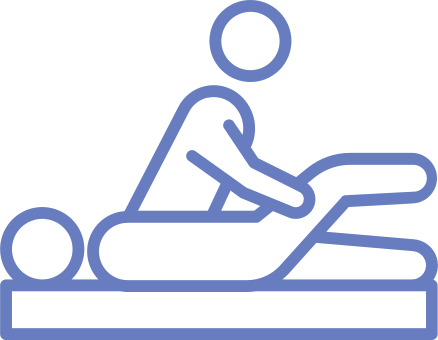 Treatment For Anxiety
Treatment For Anxiety
-
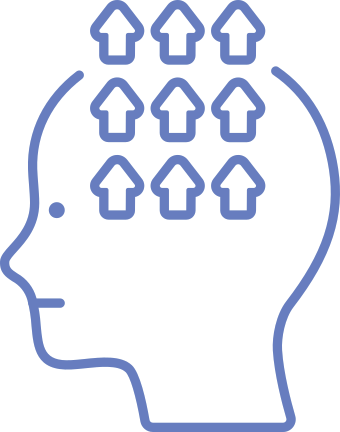 Treatment for Obsessive-Compulsive Disorder
Treatment for Obsessive-Compulsive Disorder
-
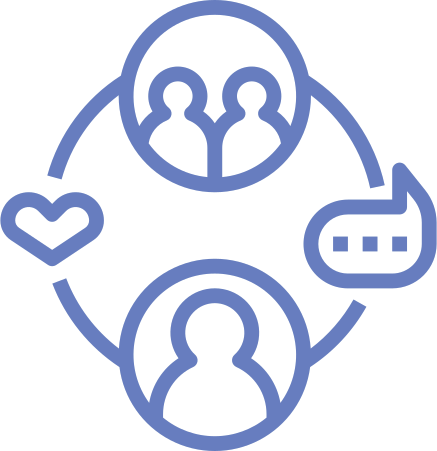 Marriage Counselling / Couples Therapy
Marriage Counselling / Couples Therapy
-
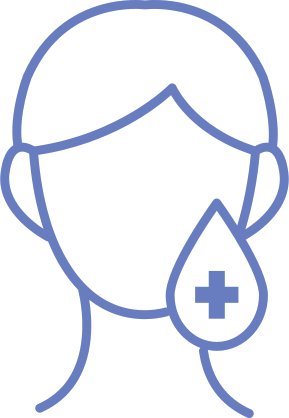 Skin Picking Disorder
Skin Picking Disorder
-
 Hair Pulling Disorder
Hair Pulling Disorder
-
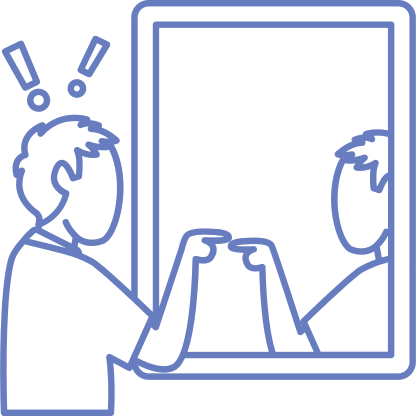 Body Image and Body Dysmorphic Disorder
Body Image and Body Dysmorphic Disorder
-
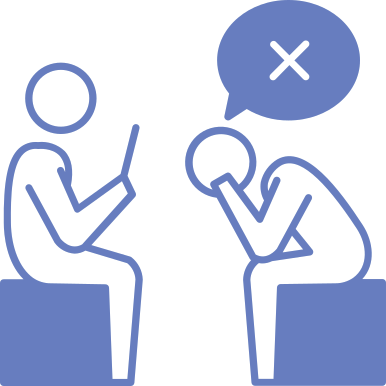 Depression Treatment
Depression Treatment
-
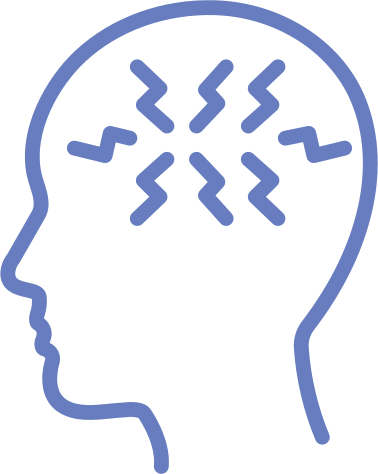 POST Traumatic Stress Disorder (PTSD) Treatment
POST Traumatic Stress Disorder (PTSD) Treatment
-
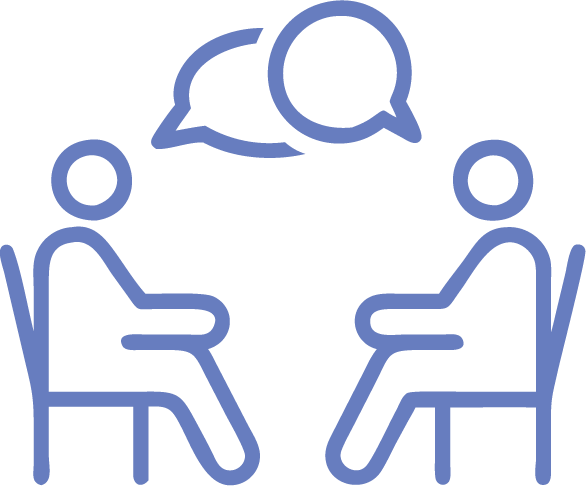 Counselling and Life Coaching
Counselling and Life Coaching
-
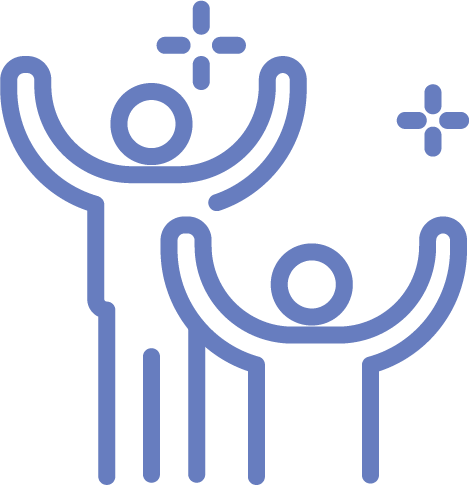 Acceptance and Commitment Therapy
Acceptance and Commitment Therapy
Treatment for Anxiety
Anxiety disorders are among the most debilitating psychological conditions experienced today by millions of people worldwide. People with anxiety disorders tend to catastrophize or overestimate the likelihood and the intensity of threat and danger and tend to find it difficult to tolerate uncertainty and doubt. Therefore catching and correcting your catastrophic style of thinking is an important strategy for reducing fear and anxiety.
Cognitive Behaviour Therapy is a treatment that teaches people how to shift their thoughts and beliefs to be more realistic. The way we think influences the way we feel. Therefore changing how we think can change how we feel. The therapy focuses on everyday experiences to teach how to change your thinking and implement action plans to reduce anxiety.
Read MoreTreatment for Obsessive Compulsive Disorder
Obsessive Compulsive Disorder (OCD) is a mental health disorder in which a cycle of obsessive thoughts and compulsions can cause significant emotional pain and impairment in a person’s ability to function. Obsessions come in the form of unwanted and distressing intrusive thoughts, images or urges. They are often accompanied by uncomfortable or intense feelings of fear, anxiety, doubt, disgust and/or worry.
The range of OCD fears and rituals is limitless. Like obsessions, compulsions can take up a considerable amount of time and get in the way of life. Although compulsions seem to be helpful in the short term the obsessions typically return as strong as ever reinforcing the cycle.
This treatment is Exposure Response Prevention (ERP) and Acceptance and Commitment Therapy, a type of CBT. Using Exposure Response Prevention clients learn to tolerate their anxiety without performing rituals.
Read MoreCognitive Behavioral Marriage Counselling / Couples Therapy
Many couples wrestle with communication. Issues can range from faulty communication about wants and needs to a complete lack of any meaningful exchange. Not having a way to understand each other can lead to resentment, hopelessness, helplessness, lack of empathy, anger and betrayal. People sometimes have little time to give each other to improve their relationships. Marriage therapy or couples counselling can be a wonderful place to build on what is working and look at what is not working. In couples counselling you will learn new perspectives and more effective ways of interacting in a safe and neutral space so that things start to change for the better and stay positive! Cognitive behavioral couples therapy is a highly effective process to assist couples experiencing relationship distress.
Read MoreSkin Picking Disorder
Skin Picking Disorder refers to recurrent picking or squeezing of the skin that can cause damage skin tissue. Recurrent picking can cause significant distress and interfere with daily activities. Any area of skin on the body may be targeted. When picking episodes provide immediate desirable relief from unwanted sensations. However it keeps the behaviour pattern continuing and may be more challenging to overcome.
The Comprehensive Behavioral Model (ComB) is the treatment method that I use to help my clients with skin picking. Numerous research studies demonstrate its effectiveness. It can give you, as it has for others, the tools to change your behaviour patterns and to modify your thoughts and feelings that have fueled your skin picking. Treatment is a healing process that may seem challenging but by taking it slowly with patience and perseverance healing is possible for the majority of individuals.
Read MoreHair Pulling Disorder
Hair Pulling Disorder involves repetitive pulling out of the hair from one’s scalp, face or anywhere on the body resulting in hair loss. It is a self-grooming behaviour in which people pull their hair. Hair pulling varies in its severity, location on the body, and response to treatment. Without treatment, hair pulling tends to be a chronic condition that can come and go over the course of one’s life. It can cause intense distress and shame as it can result in significant hair loss which one attempts to camouflage. Hair pulling can lead to tension and strained relationships with family members and friends who might also benefit from professional help.
A wide range of emotions, spanning from boredom to anxiety, frustration, and sadness can affect hair pulling as can one’s thoughts, beliefs, and values.
The Comprehensive Behavioral Model (ComB) is the treatment method that I use to help my clients with hair pulling. Numerous research studies demonstrate its effectiveness. It can give you, as it has for others, the tools to change your behaviour patterns and to modify your thoughts and feelings that have fueled your hair pulling.
Read MoreBody Image and Body Dysmorphic Disorder
Body Dysmorphic Disorder (BDD) is a serious and treatable disorder in which people spend a lot of time worrying and ruminating about their perceived flaws in one or more aspects of their physical appearance. People with Body Dysmorphic Disorder believe that they look disfigured, abnormal, ugly or deformed. They think about their appearance at least an hour a day. Their perception of their appearance may lead to shame, anxiety despair, overly critical thoughts about their appearance. They begin to avoid social situations and leave the house less often. People with BDD may seek out others reassurance and seek out unnecessary cosmetic surgeries or other cosmetic treatments to fix their perceived flaws because they see their problems as something physical that needs to be changed.
Body Dysmorphic Disorder treatment involves cognitive behaviour therapy and often medication. Cognitive Behaviour Therapy is the only psychological treatment for Body Dysmorphic Disorder that is strongly supported by research. Treatment will focus on learning how negative thoughts, emotions and behaviours maintain the problem and it will involve learning to view your appearance and your life differently. You will slowly learn more realistic thinking about your body image. The goal is to improve your quality of life and lessen the distress caused by your appearance related concerns. You will learn how to manage urges and to reduce reassurance seeking and checking.
Read MoreTreatment for Depression
Depression is a mood disorder that causes a persistent feeling of sadness and loss of interest. It affects how you think, feel and behave. It may include a lack of pleasure in activities you once enjoyed. Sometimes people dwell on past mistakes or experiences in which they felt shame or guilt. You may feel like sleeping the whole day. It can be a struggle to make decisions. You may interpret situations in a negative way and take on a negative outlook.
It is normal for people to feel down and anxious in response to a difficult life event such as work stress, loss of a job, going through a separation or the loss of a loved one. Perhaps you are finding it hard to connect with others. Maybe you’re having difficulties being present and productive at work. These feelings are normal reactions to some of life’s stressors and challenges in everyday life. When your sad mood continues for two weeks or longer and occurs most of the day it may indicate depression.
Cognitive behaviour therapy and its effectiveness for relieving symptoms of depression have been demonstrated repeatedly. Regardless of the cause of your depression if you have suffered a loss and cannot seem to bounce back or are experiencing feelings of helplessness or hopelessness, cognitive behaviour therapy can be helpful for you. Cognitive behaviour therapists focus more on the current situation and its solution rather than on the past. We challenge your negative thinking and develop strategies to change your behaviour and achieve your goals in life.
Read MoreTreatment for Post Traumatic Stress Disorder (PTSD)
For some people exposure to traumatic or stressful life events may lead to problems with anxiety and other emotions such as sadness, loss, guilt and disgust as well as symptoms such as intrusive thoughts and memories of the trauma, physical and emotional reactions to cues and avoidance of situations related to the trauma. Post Traumatic Stress Disorder is a condition that can develop after one experiences events that involve actual or threatened serious injury or death. Symptoms can develop after experiencing the trauma directly, by witnessing the traumatic events happening to others, learning about the events happening to loved ones or by repeated exposure to the details of these types of events such as by first responders, police officers and with military veterans. Post Traumatic Stress Disorder often involves anxiety, depression and substance misuse. People with Post Traumatic Stress Disorder may have difficulty with their close friends and family relationships.
Post Traumatic Stress Disorder treatment helps to restore a healthy life by rebuilding trust in yourself and others. Cognitive behavioural therapy is an evidence-based treatment that will help you redevelop a more secure and comfortable life and help you learn new coping skills to address your symptoms. You will learn how to think differently about your trauma and painful memories so that you can feel better.
Read MoreCounselling and Life Coaching
Life can be full of challenges from managing stress and overcoming emotional difficulties to navigating major transitions. At Cognitive Behaviour Therapy Toronto we are committed to helping you find balance, build resilience, and achieve your goals through experienced counselling and life coaching. Whether you’re dealing with anxiety, struggling with life direction or seeking a structured approach to personal growth, our services are tailored to meet your unique needs.
With options for counselling in Toronto and convenient online counselling we make it easier than ever to prioritize your mental health and personal development.
Read MoreAcceptance and Commitment Therapy
In the journey toward mental health and personal growth Acceptance and Commitment Therapy (ACT) stands out as a powerful and transformative approach. At Cognitive Behaviour Therapy Toronto we specialize in helping individuals navigate life’s challenges using evidence-based practices including ACT. This page explores what Acceptance and Commitment Therapy is, its benefits, and how it can help you embrace a more meaningful life.
Acceptance and Commitment Therapy (ACT) is a therapeutic approach that combines mindfulness strategies with behavioural techniques to help individuals accept their emotions, thoughts and experiences while committing to actions that align with their values.
Read MoreWHAT IS COGNITIVE BEHAVIOUR THERAPY?
Cognitive Behavior therapy (CBT) is a widely recognized and extensively researched form of psychotherapy which focuses on the connection between thoughts, emotions and behaviours. It’s emphasis is on skill-building and problem-solving while developing greater flexibility in how you think. It has been found to be effective in more than 2,000 scientific research studies across a range of mental health concerns which demonstrates that CBT can help people with a wide range of mental health conditions and quality of life concerns. CBT is a structured form of psychotherapy which emphasizes setting clear achievable goals and working collaboratively as a team to actively achieve those goals. Together we set an agenda for each session. Practical strategies are implemented to modify your thoughts and behaviours. CBT primarily concentrates on the present and focuses on current issues and challenges. The goal is to help you get better and stay better and to provide you with a greater sense of well-being by developing healthier perspectives and more adaptive and practical coping strategies which align with your aspirations and values. A typical course of short-term treatment varies between 8 to 20 sessions with planned follow up booster sessions to maintain wellness. The number of sessions varies depending on the nature of the problem and the consistency of between session practice.
YOU CAN FEEL BETTER & MAKE POSITIVE CHANGES IN YOUR LIFE.
Cognitive Behaviour Therapy Toronto provides psychotherapy for children, adolescents and adults as well as cognitive behavioural couples counselling. CBT can help you discover what you want in life and take steps towards achieving your goals. You will learn skills to change unhelpful behaviours and learn new behaviours such as gradually approaching things you have been avoiding. As you are aware there are many kinds of psychotherapy that are available. The exciting news about Cognitive Behaviour Therapy is that it is highly effective in treating numerous issues. These issues will be discussed in a positive, supportive, nonjudgmental and collaborative environment in which you will feel comfortable using evidence-based treatments including Cognitive Behaviour Therapy, Exposure and Response Prevention as well as strategies from Acceptance and Commitment Therapy and self-compassion frameworks.
We are committed to assuring you a respectful safe and welcoming space. We offer virtual and in-person options.
HOW DOES COGNITIVE BEHAVIOUR THERAPY HELP?
Cognitive Behaviour Therapy or CBT therapy helps by focussing on identifying and challenging unhelpful thoughts getting in the way of living a fulfilling life. CBT therapy focuses on ways in which your thoughts and behaviour can contribute to problems and on how to address these problems by thinking differently and behaving differently. It focuses on understanding and changing how you think and what you can do to resolve your current life challenges and alleviate your stress. CBT therapy can provide you with a new way to approach your problems as well as target change in the patterns that maintain your problems. Our thoughts, feelings and behaviour are interrelated as one system. Therefore changing an aspect of this system will likely have an impact on the other areas. For example, by changing how we think in a more realistic way will impact our feelings and physical symptoms and by changing how we behave in given situations can affect the way we think and feel. Developing greater flexibility in how you think about your experiences opens up new options for responding differently. You may also learn new behaviours to try new situations differently. CBT therapy empowers people by providing them with practical tools and strategies to actively address their issues and give them a sense of control over their mental health. Cognitive behaviour therapy has been in use for many years and its ability to achieve positive results is very well researched.
HOW DOES CBT THERAPY WORK?
Counselling will offer you insight and will empower you to make positive real changes in your life. Numerous studies show that Cognitive Behaviour Therapy is as effective or more effective than medication in the treatment of depression, anxiety, obsessions and other fears without the negative side-effects of medications. Sometimes CBT is used together with medication. CBT focuses on providing you with lifelong skills to manage your mental health more effectively and thereby reducing the likelihood of relapse to promote a long term sense of greater well-being. At Cognitive Behaviour Therapy Toronto we have the necessary understanding as well as expertise to help you improve your mood, overcome challenges, get unstuck and achieve your goals in life. We will work with you collaboratively to determine the best approach that suits your needs and goals so that you can work towards a happier and more productive life. Book your one hour consultation session today!
Book your one hour consultation today.
If you are looking for help with Anxiety,Depression,Body image related issues, Life stressors, BFRB’s, Relationship issues including Marriage counselling, Chronic pain, Perfectionism and other issues I can help you. I have been a therapist for more than 30 years and maintain current training and certifications in many issues using CBT therapy and ACT therapy. I listen in a non-judgmental and empathic way and work to understand your challenges. I provide proven strategies to help work through your challenges.
Memberships & Accreditations
CBT Therapy FAQ
What problems can CBT help with?
CBT has been thoroughly investigated and proven to be successful in treating a variety of mental health conditions and issues. It is frequently employed to treat anxiety disorders, depression, phobias, PTSD, obsessive-compulsive disorder (OCD), eating disorders, substance abuse, marital issues, and stress-related issues. CBT can be helpful for people of all ages, including kids, teenagers, and adults.
How long does CBT treatment typically last?
The duration of CBT treatment can vary depending on several factors, such as the nature and severity of the individual's difficulties, their treatment goals, and their progress throughout therapy. Generally, CBT is considered a time-limited therapy, with treatment ranging from a few weeks to several months. It typically involves regular sessions, usually on a weekly or bi-weekly basis.
What should I anticipate from a CBT session?
You can anticipate working with your therapist in a nonjudgmental and supportive setting during a CBT session. Your specific challenges will be identified and understood by the therapist, who will also assist you in developing the skills and strategies you need to deal with them. During sessions, you might talk about your feelings, thoughts, and actions; set goals; learn and put new coping mechanisms into practice; and assess your progress. Typically, therapy sessions are planned and concentrated on particular issues.
FAQ
View AllHow does CBT help with anxiety disorders?
CBT helps people with anxiety disorders by teaching them to recognize and challenge unhelpful thoughts and gradually face feared situations. read more
What are the benefits of Cognitive Behaviour Therapy?
There are so many benefits that Cognitive Behaviour Therapy has to offer. read more











